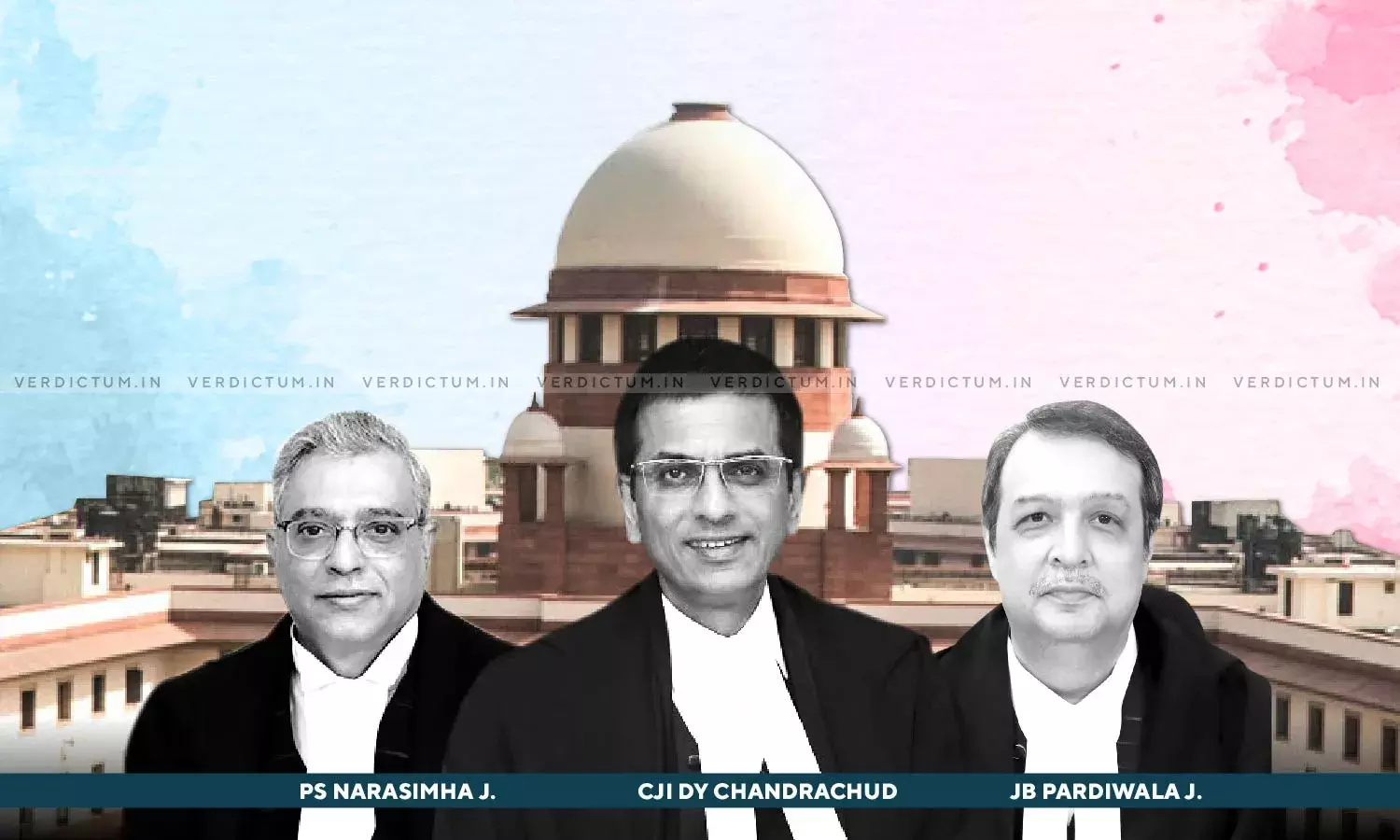Squarely Pertains To Legislative Domain: SC Refuses To Restrain Candidates From Contesting Elections In Two Constituencies

The Supreme Court today disposed of the plea filed by Advocate Ashwini Kumar Upadhyay that sought to restrict people from contesting election for the same office from two constituencies simultaneously.
“This is legislative policy. It is for the Parliament to decide”, said a Bench comprising CJI DY Chandrachud, Justice PS Narasimha and Justice JB Pardiwala of the Supreme Court.
“The practice goes against Articles 19 and 21. Candidate tells me I'll deliver these promises but they don't tell the voter that if I win a seat in a different constituency, I'll go there”, submitted Senior Advocate Gopal Sankaranarayanan, appearing on behalf of the petitioner.
“What if a candidate dies or is later disqualified under Schedule X of the Constitution?”, asked the Bench. “The Candidate may not know himself/herself that they will win both of the seats. This is done for a variety of reasons. This is part of democracy. What is unconstitutional about it?”, it added further.
Attorney General R Venkataramani appeared for the Union of India.
The Apex Court refused to entertain the plea saying that the Parliament may step in and it is not for the Court to pass such a direction to the Centre and ECI (Election Commission of India) to restrict a person from contesting from multiple constituencies.
The Court disposed of the petition saying that “the prayer raised squarely pertains to legislative domain. Undoubtedly, letting a candidate appear in multiple seats in the same general election would mean that if he wins in both then one seat has to be forsaken, which necessitates bye-election, draining the public exchequer. Permitting a candidate to contest from more than one seat in an election is a matter of legislative policy since it is Parliament's will as to whether parliamentary democracy would be furthered by granting such a choice”.
The Court said that there does not exist “any manifest arbitrariness or violation of Articles 14 and 21” and the issue relates to exercise of parliamentary sovereignty. It further said that to strike down any provision as unconstitutional, the Parliament must lack legislative competence or such provision must breach any fundamental right guaranteed under the Constitution. The Court clarified that its decision will not prevent the Parliament from amending the provision of Representation of the People Act, 1951, under challenge, namely its Section 33(7).
The plea said that “One Person One Vote” and “One Candidate One Constituency” is the dictum of democracy. However, as per the present position of law, a person can contest the election for the same office from two constituencies simultaneously, which the plea termed as “unconstitutional”.
Sub-Section(7) of Section 33 of the Representation of the People Act (RPA), 1951, was introduced in 1996 and allows a person to contest a general election or a group of bye-elections or biennial elections from two constituencies.
Similarly, Section 70 of the RPA, specifies that if a person is elected to more than one seat in either House of the Parliament or in either House of the State Legislature, then he/she can only hold on to one of the seats that he/she won in the election.
The plea said that “when a candidate contests from two seats, it is imperative that he has to vacate one of the two seats if he wins both. This, apart from the consequent unavoidable financial burden on the public exchequer, government manpower and other resources for holding bye-election against the resultant vacancy is also an injustice to the voters of the constituency which the candidate is quitting from”.
In 2004, the Election Commission of India (ECI) suggested that if existing provisions are retained then the candidate contesting from two seats should bear the cost of the bye-election to the seat that the contestant decides to vacate in the event of his/her winning both seats. The amount in such an event could be Rs. 5,00,000/- for State Assembly and Council Election and Rs. 10,00,000/- for election to the House of People, the plea read.
The Law Commission in its 255th Report recommended that the Representation of the People Act, 1951 should be amended to provide that a person cannot contest from more than one seat at a time. The Goswami Committee in 1990 and Law Commission in its 170th Report in 1999 have recommended the same.
The petitioner prayed that Section 33(7) of the Representation of People Act,1951 may be declared as invalid and ultra-vires the Constitution.
In 2017, the Supreme Court rejected one of the prayers contained in the present petition that sought directions to the Election Commission to discourage the independent candidates from contesting the Parliament and State Assembly election.
Cause Title- Ashwini Kumar Upadhyay v. Union of India & Ors.

